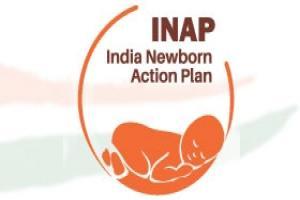- Chandigarh UT
- Creative Corner
- Dadra Nagar Haveli UT
- Daman and Diu U.T.
- Department of Administrative Reforms and Public Grievances
- Department of Biotechnology
- Department of Commerce
- Department of Consumer Affairs
- Department of Industrial Policy and Promotion (DIPP)
- Department of Posts
- Department of Science and Technology
- Department of Telecom
- Digital India
- Economic Affairs
- Ek Bharat Shreshtha Bharat
- Energy Conservation
- Expenditure Management Commission
- Food Security
- Gandhi@150
- Girl Child Education
- Government Advertisements
- Green India
- Incredible India!
- India Textiles
- Indian Railways
- Indian Space Research Organisation - ISRO
- Job Creation
- LiFE-21 Day Challenge
- Mann Ki Baat
- Manual Scavenging-Free India
- Ministry for Development of North Eastern Region
- Ministry of Agriculture and Farmers Welfare
- Ministry of Chemicals and Fertilizers
- Ministry of Civil Aviation
- Ministry of Coal
- Ministry of Corporate Affairs
- Ministry of Culture
- Ministry of Defence
- Ministry of Earth Sciences
- Ministry of Education
- Ministry of Electronics and Information Technology
- Ministry of Environment, Forest and Climate Change
- Ministry of External Affairs
- Ministry of Finance
- Ministry of Health and Family Welfare
- Ministry of Home Affairs
- Ministry of Housing and Urban Affairs
- Ministry of Information and Broadcasting
- Ministry of Jal Shakti
- Ministry of Law and Justice
- Ministry of Micro, Small and Medium Enterprises (MSME)
- Ministry of Petroleum and Natural Gas
- Ministry of Power
- Ministry of Social Justice and Empowerment
- Ministry of Statistics and Programme Implementation
- Ministry of Steel
- Ministry of Women and Child Development
- MyGov Move - Volunteer
- New Education Policy
- New India Championship
- NITI Aayog
- NRIs for India’s Growth
- Open Forum
- PM Live Events
- Revenue and GST
- Rural Development
- Saansad Adarsh Gram Yojana
- Sakriya Panchayat
- Skill Development
- Smart Cities
- Sporty India
- Swachh Bharat (Clean India)
- Tribal Development
- Watershed Management
- Youth for Nation-Building
India Newborn Action Plan (INAP)

Start Date :
Jan 01, 2015
Last Date :
Nov 30, 2014
04:15 AM IST (GMT +5.30 Hrs)
The India Newborn Action Plan (INAP) was launched by Hon’ble Union Minister for Health and Family Welfare, Dr. Harsh Vardhan on 18th September, 2014 in New Delhi. It outlines ...


Problem of malnutrition may be curbed through effective Family Planning Measures, free distribution of dietary supplement among poor people, creating awareness about dangerous consequence of malnutrition and insanitation along with effective monitoring and control programs.
best ideas sir ji.....
some people dont have child they will try to by the way of medical suppose they dont have child what the help from govt pl
देश में अनेक गर्भवती माताएं पेट भर खाना सिर्फ इसलिये नही खाती है क्योंकि वक्त बेवक्त शौच जाने जैसी बुनियादी सुविधा उन्हे हासिल नहीं है। नतीजतन गर्भ में पल रहा बच्चा तक कुपोषण का शिकार हो जाता है। एक अनुमान के मुताबिक तमाम प्रयासों के बावजूद भारत में आज भी 12 करोड़ शौचालयों की कमी है। हालांकि निराशा के इस आलम में एक राहत की बात है कि शौचालय बनाना सरकार की अब सर्वोच्च प्राथमिकता बन रहा है।
we should strictly follow a population rule with 1 child or no child
Improve services in NICUs.
Better hand hygiene practices to be taught to patients and nurses.
1.Improving d facilities in our nicu,picu 2.reducing d workload in d government hospitals by providing more residency seats so as d doctor patient ratio improves n quality health for all
Ex. Gynaecologist in a govt place n pediatrician is just one who has to b dere on call for day n night so hw cn u expect a great quality care??
Increase d no of quality doctors by increasing residencies in govt hospitals..n more jobs in govt sector for specialists
How will govt.control pvt.practitioners ?
There should be an online registration system to facilitate timely delivery of antenatal
and post natal care services to all the pregnant women and immunization to all the children .
Population control
1. Every parent has to deposit Rs. 2000 to obtain birth certificate or aadhaar card and Government will return this money after 18 years with an interest rate of 10%.
2. In case parent is not in state of deposit this money then father and mother has to undergo Surgical Sterilization(birth control) to obtain this certificate(which should be made mandatory)
This system can be made fool proof by adding few more things.